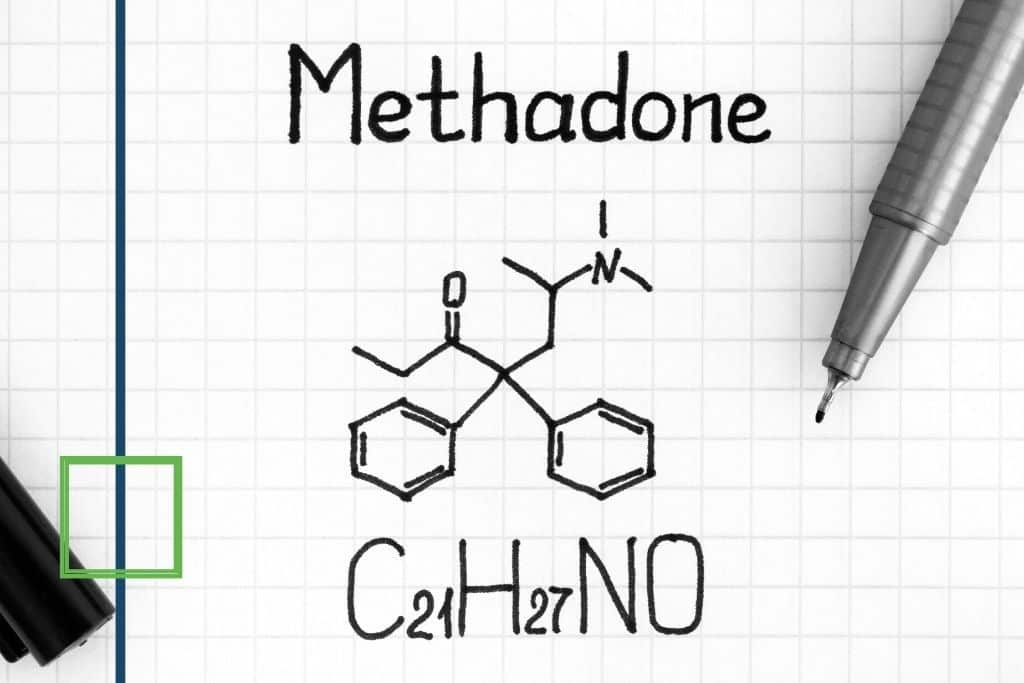About Diagnosing Drug Addiction
Diagnosing a drug addiction requires evaluation by a medical or mental health professional. A thorough diagnosis often includes assessment by multiple professionals, such as a general practitioner, psychiatrist, and psychologist. In addition, individuals should undergo evaluation and testing for drug addiction and other conditions that could provide to or affect the addiction, such as medical conditions and mental health disorders.
In a formal addiction treatment program, the diagnostic process often takes place during the initial assessment. After that assessment, which may involve medical tests in addition to an interview with the client, initial diagnoses may be made. These diagnoses may be fine-tuned as the treatment process begins.
Get Help. Get Better. Get Your Life Back.
Searching for Accredited Drug and Alcohol Rehab Centers Near You?
Even if you have failed previously and relapsed, or are in the middle of a difficult crisis, we stand ready to support you. Our trusted behavioral health specialists will not give up on you. When you feel ready or just want someone to speak to about therapy alternatives to change your life call us. Even if we cannot assist you, we will lead you to wherever you can get support. There is no obligation. Call our hotline today.
(844) 597-1011The Steps To Diagnosing Drug Addiction
Before enrolling in a treatment program, an individual may go through the following steps in the diagnostic process.
Step 1: Visit A General Practitioner Or Medical Professionals
A doctor will assess general health and perform tests to evaluate drug use. Blood or urine tests can establish levels of illicit substances within the body and provide an accurate view of how much drug use is occurring. Medical tests cannot diagnose an addiction; however, they establish drug use. Other blood tests may be performed to check for co-occurring diseases.
A medical professional is a good point of entry for anyone who needs to be evaluated for addiction issues. A general practitioner can then refer you to a psychiatrist or other addiction specialist. In addition, clients will likely continue to see a general practitioner throughout the rehabilitation process so public health and drug use can be monitored.

Step 2: Visit A Mental Health Professional
A psychiatrist – a medical doctor, specializing in mental health – or a psychologist can diagnose a substance use disorder. A mental health professional will typically begin an evaluation by discussing what substances are being used and at what frequency and dosages. Most mental health professionals use the Diagnostic and Statistical Manual of Mental Disorders, Fifth Edition (DSM-5) to diagnose addiction and other mental conditions. Here are the lists of the following DSM-5 criteria for substance use disorders:
- Social, occupational, and recreational activities are neglected in favor of substance use.
- Use of the substance occurs in dangerous situations, such as before driving.
- The person wants to quit but feels unable to do so.
- The person experiences physical or psychological withdrawal when stopping or cutting back and uses the substance to avoid these symptoms.
- The substance use prevents the individual from meeting obligations and fulfilling responsibilities.
- Substance use continues in spite of negative consequences.
- The individual uses increasingly higher doses or uses the substance with more frequency than intended.
- A large amount of time is spent getting and using the drug and recovering from the effects of the substance.
- The person experiences strong urges or cravings for the drug.
- The individual has built up a tolerance to the substance and must use a higher dose to achieve the desired effects.
- The substance is causing physical or psychological harm, but use continues regardless.
At least two of these criteria must occur within 12 months for a substance use disorder to be diagnosed. DSM-5 includes various diagnoses for substance use disorders, which organize addictive substances into six categories. SAMHSA lists the following substance use disorders as being included in DSM-5[1]:
- Alcohol use disorder
- Tobacco use disorder
- Cannabis use disorder
- Stimulant use disorder
- Hallucinogen use disorder
- Opioid use disorder
Addiction can often be diagnosed through an informal conversation with a mental health professional. The professional can gather needed information and establish if the person is suffering from a disorder. Sometimes, a more formal assessment is required, and the psychiatrist or psychologist will use a clinical assessment tool.
Step 3: Undergo A Formal Assessment
Various assessment instruments can be used to diagnose a substance use disorder. These instruments are often lists of questions the interviewer will ask to determine if the person has a substance use disorder or what kind of disorder is present. The following is a list of common substance use disorder assessments[2]:
- Structured Clinical Interview for DSM-5
- Alcohol Use Disorders and Associated Disabilities Interview Schedule
- Semi-Structured Assessment for Drug Dependence and Alcoholism
- Composite International Diagnostic Interview
- Psychiatric Research Interview for Substance and Mental Disorders
- Addiction Severity Index
Which assessment the mental health professional uses depends on the professional’s level of training and provides the most accurate picture of the specific client’s mental health and drug use. Regardless of what type of assessment is administered, the mental health professional will use the answers to establish whether or not the client meets the criteria for a substance use disorder.

Step 4: Create A Treatment Plan
Once a substance use disorder has been diagnosed, a treatment plan will be created. The treatment team will often include a therapist or counselor and a psychiatrist, and a medical doctor. The appropriate treatment plan will depend on the client’s unique circumstances. For example, the therapist or doctor may recommend inpatient or residential treatment, which requires the client to spend 24 hours a day within a treatment facility for an agreed-upon length of time. On the other hand, a less severe substance use disorder may only require outpatient treatment, in which therapy is provided while the client continues to live at home.
According to SAMHSA[3], medications are most often used to treat alcohol, tobacco, and opioid dependence. Therefore, treatment must address the addiction and any co-occurring physical or mental health disorders.

Get Your Life Back
Find Hope & Recovery. Get Safe Comfortable Detox, Addiction Rehab & Dual Diagnosis High-Quality Care.
Hotline(844) 597-1011Coping And Support
Overcoming an addiction and staying drug-free require a persistent effort. Learning new coping skills and knowing where to find help is essential. Taking these actions can help:
- See A Licensed Therapist Or Licensed Drug And Alcohol Counselor: Drug addiction is linked to several problems that may be helped with therapy or counseling, including other underlying mental health concerns or marriage or family problems. Seeing a psychiatrist, psychologist, or licensed counselor may help you regain your peace of mind and mend your relationships.
- Seek Treatment For Other Mental Health Disorders: People with other mental health problems, such as depression, are more likely to become addicted to drugs. Seek immediate treatment from a qualified mental health professional if you have any signs or symptoms of mental health problems.
- Join A Support Group: Support groups, such as Narcotics Anonymous or Alcoholics Anonymous, can effectively cope with addiction. Compassion, understanding, and shared experiences can help you break your addiction and stay drug-free.
First-class Facilities & Amenities
World-class High-Quality Addiction & Mental Health Rehabilitation Treatment
Rehab Centers TourRenowned Addiction Centers. Serene Private Facilities. Inpatient rehab programs vary.
Addiction Helpline(844) 597-1011Proven recovery success experience, backed by a Team w/ History of:
15+
Years of Unified Experience
100s
5-Star Reviews Across Our Centers
10K
Recovery Success Stories Across Our Network
- Low Patient to Therapist Ratio
- Onsite Medical Detox Center
- Comprehensive Dual-Diagnosis Treatment
- Complimentary Family & Alumni Programs
- Coaching, Recovery & Personal Development Events
Preparing For Your Appointment For Diagnosing Drug Addiction
It may help to get an independent perspective from someone you trust and who knows you well. You can start by discussing your substance use with your primary doctor or ask for a referral to a specialist in drug addiction, such as a licensed alcohol and drug counselor or a psychiatrist or psychologist. Take a relative or friend along.
Here’s some information to help you get ready for your appointment.
Before your appointment, be prepared:
- Be honest about your drug use. When you engage in unhealthy drug use, it can be easy to downplay or underestimate how much you use and your level of addiction. To get an accurate idea of which treatment may help, be honest with your doctor or other mental health professional.
- Make a list of all medications, vitamins, herbs, or other supplements you’re taking and the dosages. Tell the doctor about any legal or illegal drugs you’re using.
- Make a list of questions to ask your doctor or mental health professional.

World-class, Accredited, 5-Star Reviewed, Effective Addiction & Mental Health Programs. Complete Behavioral Health Inpatient Rehab, Detox plus Co-occuring Disorders Therapy.
CALL(844) 597-1011End the Addiction Pain. End the Emotional Rollercoaster. Get Your Life Back. Start Drug, Alcohol & Dual Diagnosis Mental Health Treatment Now. Get Free No-obligation Guidance by Substance Abuse Specialists Who Understand Addiction & Mental Health Recovery & Know How to Help.
Drug Addiction Treatment
Although there’s no cure for drug addiction, the treatment options explained below can help you overcome an addiction and stay drug-free. Your treatment depends on the drug used and any related medical or mental health disorders you may have. Long-term follow-up is essential to prevent relapse.
At We Level Up Treatment Center provides world-class care with round-the-clock medical professionals available to help you cope. In addition, we work as an integrated team providing information about diagnosing drug addiction. Make this your opportunity to reclaim your life. Call today to speak with one of our treatment specialists. Our specialists know what you are going through and will answer any of your questions.
Your call is private and confidential, and there is never any obligation.
Experience Transformative Recovery at We Level Up Treatment Centers.
See our authentic success stories. Get inspired. Get the help you deserve.
Start a New Life
Begin with a free call to an addiction & behavioral health treatment advisor. Learn more about our dual-diagnosis programs. The We Level Up Treatment Center Network delivers recovery programs that vary by each treatment facility. Call to learn more.
- Personalized Care
- Caring Accountable Staff
- World-class Amenities
- Licensed & Accredited
- Renowned w/ 100s 5-Star Reviews
We’ll Call You
Sources
[1] SAMHSA – http://www.samhsa.gov/disorders/substance-use
[2] NCBI – https://www.ncbi.nlm.nih.gov/pmc/articles/PMC2797097/
[3] SAMHSA – http://www.samhsa.gov/treatment/substance-use-disorders
We Level Up NJ – Inpatient Rehab – Co-Morbid Conditions Diagnoses and Treatment





